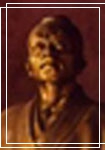“且不知门外”的意思及全诗出处和翻译赏析
“且不知门外”全诗
奈寻春步远,马嘶湖曲,卖花声过,人唱窗纱。
暖日晴烟,轻衣罗扇,看遍王孙七宝车。
谁知道,十年魂梦,风雨天涯。
休休何必伤嗟。
谩赢得、青青两鬓华。
且不知门外,桃花何代,不知江左,燕子谁家。
世事无情,天公有意,岁岁东风岁岁花。
拚一笑,且醒来杯酒,醉后杯茶。
分类: 沁园春
作者简介(王炎午)

王炎午(1252-1324)初名应梅,字鼎翁,别号梅边,江西安福舟湖(今洲湖)人。炎午出身于书香世家,自幼刻苦读书,曾从事《春秋》研究。咸淳甲戌(1274)年,补中大学上舍生。临安陷,谒文天祥,竭家产助勤王军饷,文天祥留置幕府,以母病归。文天祥被执,特作生祭文以励其死。入元,杜门却扫,肆力诗文,更其名曰炎午,名其所著曰《吾汶稿》,以示不仕异代之意。泰定元年卒,年七十三。《南宋书》、《新元史》有传。今存词一首,见《元草堂诗馀》卷下。
《沁园春》王炎午 翻译、赏析和诗意
《沁园春》
又是年时,杏红欲脸,柳绿初芽。
It is the season again, the apricot blossoms blush, the willows sprout.
奈寻春步远,马嘶湖曲,卖花声过,人唱窗纱。
Unfortunately, the steps to find spring are far, the horses neigh by the lake bend, the sound of flower peddling passes, people singing behind the window screens.
暖日晴烟,轻衣罗扇,看遍王孙七宝车。
The warm sun and clear smoke, light clothes and silk fans, witnessing the procession of luxurious carriages of noble sons.
谁知道,十年魂梦,风雨天涯。
Who could know that for ten years, my soul has wandered as if in a dream, through wind and rain, to the farthest corners of the earth.
休休何必伤嗟。谩赢得、青青两鬓华。
Stop, no need for sorrow. I have only managed to gain some petty worldly gains, and yet my hair has turned prematurely grey.
且不知门外,桃花何代,不知江左,燕子谁家。
I have no knowledge of the blossoms outside my gate, or which generation of peach blossoms they belong to. I have no idea who owns the swallows that fly by the riverside.
世事无情,天公有意,岁岁东风岁岁花。
The world is heartless, but the heavens have their own intentions, and every year comes the east wind, bringing flowers.
拚一笑,且醒来杯酒,醉后杯茶。
Let's raise a smile, and have a cup of wine upon waking, and after being intoxicated, enjoy a cup of tea.
诗意和赏析:
这首诗描绘了一个春天的景象,诗人通过描写春天的景色和感受,抒发了对时光流转和生命变迁的感慨。诗中使用了一些意象来表达作者对美好事物的向往,如杏红、柳绿和七宝车,希望能够享受春天的美好和繁华。然而,诗人也意识到人生的无奈和无常,时间的流逝带来了一些遗憾和伤感。诗人提醒自己不要过于忧伤,而是应该珍惜眼前的美好,以轻松的心态面对人生的无情和变幻。最后,诗人以喜悦和宽容的心态,用酒和茶来象征生活的快乐和安逸。
该诗通过描写春天的景象,表达了作者对美好事物和时光流转的向往,并呼唤人们珍惜眼前的快乐。诗人以流畅的笔触和韵律感,将内心的情感与外在的景色相融合,展示了他细腻的感受和深邃的思考。整首诗以简洁明了的语言,道出了人生的无常和变迁,表达了对美好事物的渴望和对时间的珍惜。
“且不知门外”全诗拼音读音对照参考
qìn yuán chūn
沁园春
yòu shì nián shí, xìng hóng yù liǎn, liǔ lǜ chū yá.
又是年时,杏红欲脸,柳绿初芽。
nài xún chūn bù yuǎn, mǎ sī hú qū, mài huā shēng guò, rén chàng chuāng shā.
奈寻春步远,马嘶湖曲,卖花声过,人唱窗纱。
nuǎn rì qíng yān, qīng yī luó shàn, kàn biàn wáng sūn qī bǎo chē.
暖日晴烟,轻衣罗扇,看遍王孙七宝车。
shéi zhī dào, shí nián hún mèng, fēng yǔ tiān yá.
谁知道,十年魂梦,风雨天涯。
xiū xiū hé bì shāng jiē.
休休何必伤嗟。
mán yíng de qīng qīng liǎng bìn huá.
谩赢得、青青两鬓华。
qiě bù zhī mén wài, táo huā hé dài, bù zhī jiāng zuǒ, yàn zi shuí jiā.
且不知门外,桃花何代,不知江左,燕子谁家。
shì shì wú qíng, tiān gōng yǒu yì, suì suì dōng fēng suì suì huā.
世事无情,天公有意,岁岁东风岁岁花。
pàn yī xiào, qiě xǐng lái bēi jiǔ, zuì hòu bēi chá.
拚一笑,且醒来杯酒,醉后杯茶。
“且不知门外”平仄韵脚
平仄:仄仄平平仄
韵脚:(仄韵) 去声九泰 (仄韵) 去声九泰 * 平仄拼音来自网络,仅供参考;诗句韵脚有多个的时候,对比全诗即可判断。